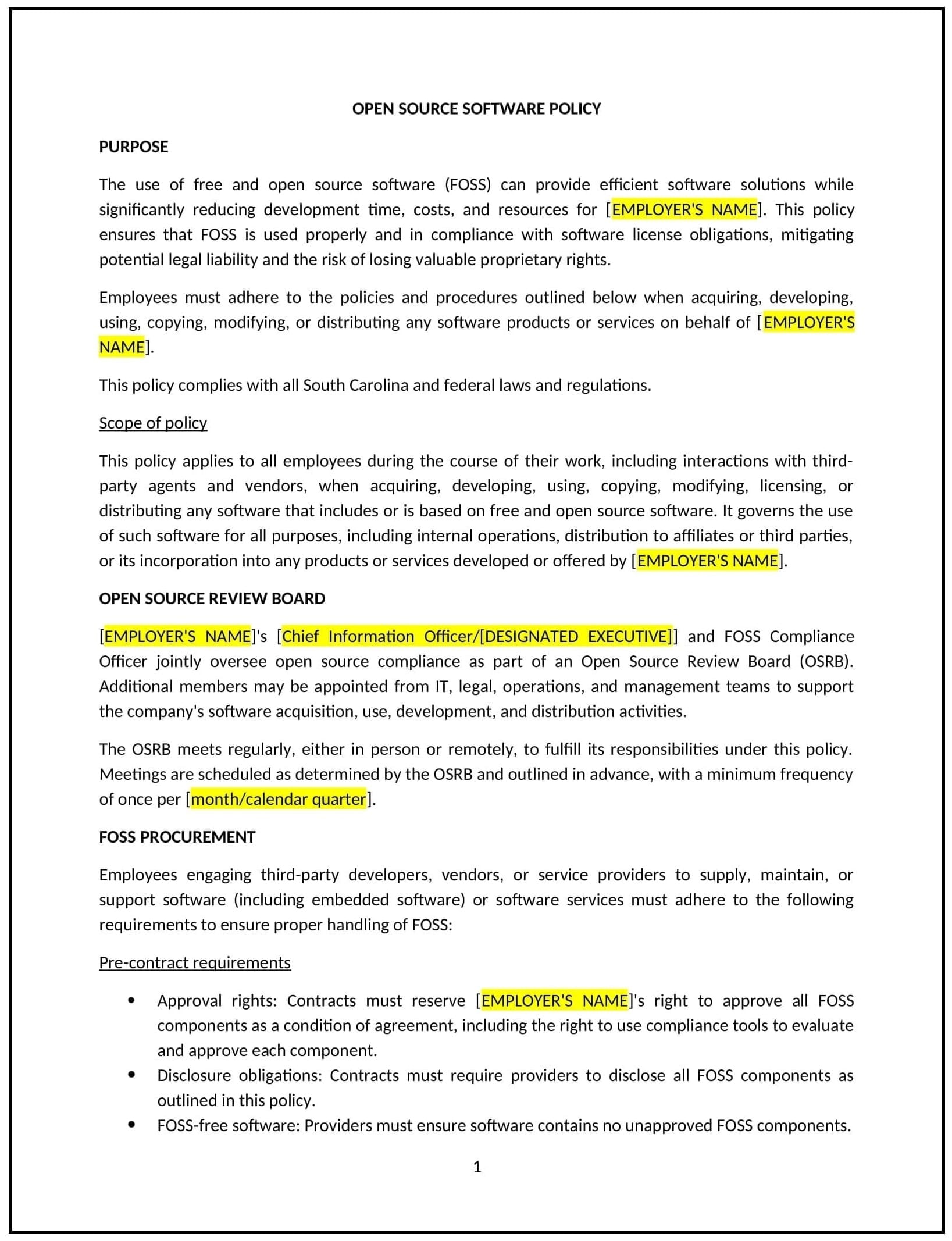Open source software policy (South Carolina): Free template
Got contracts to review? While you're here for policies, let Cobrief make contract review effortless—start your free review now.

Customize this template for free
Open source software policy (South Carolina)
This open source software policy is designed to help South Carolina businesses establish guidelines for using, contributing to, and managing open source software (OSS) in their operations. It outlines procedures for evaluating OSS licenses, ensuring compliance, and protecting intellectual property while leveraging the benefits of open source solutions.
By adopting this policy, businesses can harness the advantages of OSS, reduce software costs, and align with legal and ethical standards for software usage.
How to use this open source software policy (South Carolina)
- Define open source software: Explain what constitutes OSS, including its licensing terms and community-driven development model.
- Establish usage guidelines: Provide rules for evaluating and approving OSS for business use, including compatibility with existing systems and compliance with licensing terms.
- Address contribution policies: Outline procedures for contributing to OSS projects, such as code submissions or financial support, while protecting proprietary information.
- Set compliance measures: Ensure that OSS usage complies with licensing requirements, such as attribution or sharing derivative works.
- Train employees: Educate staff on OSS licensing, usage, and contribution practices to avoid legal or security risks.
- Review and update: Assess the policy annually to ensure it aligns with evolving business needs and OSS standards.
Benefits of using this open source software policy (South Carolina)
This policy offers several advantages for South Carolina businesses:
- Reduces software costs: Leverages free or low-cost OSS solutions to meet business needs.
- Enhances innovation: Encourages the use of cutting-edge OSS tools and technologies.
- Aligns with legal standards: Ensures compliance with OSS licensing terms and intellectual property laws.
- Builds trust: Demonstrates a commitment to ethical and responsible software usage.
- Supports collaboration: Facilitates contributions to OSS projects, benefiting both the business and the broader OSS community.
Tips for using this open source software policy (South Carolina)
- Communicate the policy: Share the policy with employees and include it in the employee handbook.
- Provide training: Educate staff on OSS licensing, usage, and contribution practices.
- Monitor adherence: Regularly review OSS usage and contributions to ensure compliance with the policy.
- Address issues promptly: Take corrective action if OSS usage or contributions violate licensing terms or business interests.
- Update regularly: Assess the policy annually to ensure it aligns with evolving business needs and OSS standards.